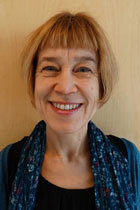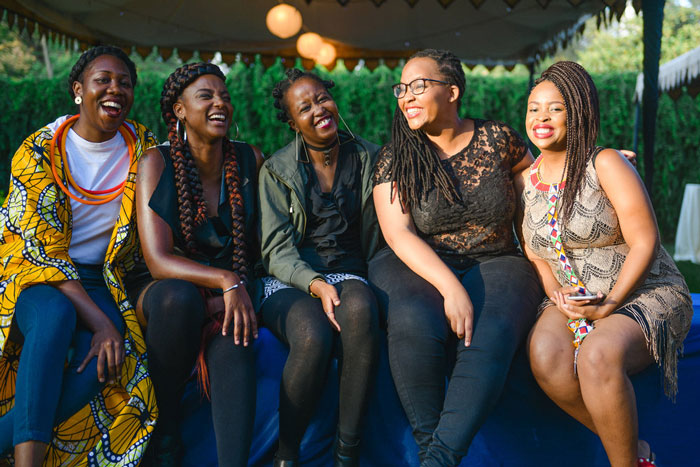Global Africa is here, get used to it!


Mayke Kaag is a senior researcher at the African Studies Centre Leiden. She is the convenor of the Collaborative Research Group Africa in the world: Rethinking Africa's global connections and chair of the Research Master in African Studies.
Why is it that a serious plane crash in Ethiopia only figures somewhere halfway the Dutch TV News, and only mentions the victims who have European or North-American nationalities (see also Bram Vermeulen’s article in the Dutch newspaper NRC)? Why is it still so difficult to get attention for the Dutch role in the transatlantic slave trade, and, more in general, to have African history included in the history curriculum in Dutch schools? It is about time that perspectives from Africa get incorporated and mainstreamed in Europe and beyond, that Africa gets de-exoticized, and I believe that African Studies has a role to play in this.
As an Africanist, mother of an African-European child, and blessed with friends of which a number are African, I am always somewhat shocked when I experience that for most people in the Netherlands, Africa does not exist as a meaningful entity. Normally, it does not enter into their thoughts at all, and at best, it only figures marginally in their view on the world – as a holiday destination, or as a far-away continent where despite poverty and war, people are happily laughing and know how to run and to dance (when not dying from hunger), or as a misty point of departure from which boat migrants emerge trying to reach European shores.
The general interest of African Studies
On Friday 15 March, Leiden University held its half-yearly Master information day for prospective students. We had a room full of students interested in pursuing a Master or Research Master in African Studies, and eager to hear what interest they could find in such a programme. Both for students attracted by the promise of exotic fieldwork and students looking for relevance in terms of their being in the world, I thought it important to underline that the general interest of African Studies lies in the fact that Africa is not just a remote part of the globe, over there, and out of focus… Africa is here. In learning about how power and trust work in Africa, at the same time one learns something about power and trust in general. In addition, what happens in Africa has a relevance for us here. Africans are co-shaping global history and today’s world, just like people on and from other continents. We are all part of the same economic and ecologic sphere, navigate the same ‘timescape’, and constitute one global interdependent community.

Uneven integration in the global order
I am the first to admit that the foregoing sounds rather idealistic, but I think it is an essential point of departure on which African Studies should be built. It allows for further scrutinizing how empirically this global community is constituted and how different African localities and actors are situated in it. As was so eloquently put by James Ferguson: it is important to forge “understandings of the global, centered less on transnational flows and images of unfettered connection than on the social relations that selectively constitute global society and on the rights and obligations that characterize it” (Global Shadows. Africa in the Neoliberal World Order. Duke University Press, 2006). The world is one, still divided, and connections are between nodes that are uneven in terms of power and voice; these questions of uneven integration in the global order should be addressed, both locally and globally.
Attention for Beira in Dutch media
One more recent example to illustrate the dynamics at play: last week’s cyclone and flooding in Malawi, Zambia, and Mozambique have received a lot of attention in the Dutch media; particularly the situation in Beira, a coastal town in Mozambique. One could argue that this example invalidates the observation with which I started this blog – Africa is not ignored. It is worthwhile to note, however, that Beira has an intensive relationship with the Dutch government and Dutch businesses, as well as with other bilateral and multilateral donors, who all invest in ambitious infrastructural urban development plans in Beira, as is shown by Murtah Shannon’s PhD research in the city (PhD thesis forthcoming. Also see the article 'Sustainable Urbanization on Occupied Land? The Politics of Infrastructure Development and Resettlement in Beira City, Mozambique'). Beira is thus relatively well connected globally and currently receiving a lot of emergency aid. This is not the case for the unconnected hinterland, where the situation is as bad but where relief operations have not yet arrived. (Luckily, personal connections are currently deployed to start small scale help.) The example shows how true Ferguson’s observation is. What this example also illustrates, is that Africans still mainly figure in our news media as anonymous masses without voice.
How young Africans see the world
Therefore, a last, more fun, tip, to learn more about Global Africa and how young people in Africa may comment on the (local and global) world around them: watch the ‘Nest Collective’, a collective of young creatives in Nairobi. My favourite is episode 5 of the mini-series ‘We need Prayers’. Enjoy, spread the word, and reflect!
This post has been written for the ASCL Africanist Blog. Would you like to stay updated on new blog posts? Subscribe here! Would you like to comment? Please do! The ASCL reserves the right to edit, shorten or reject submitted comments.
Top photo: The Nest Collective: Not African Enough - A Fashion Book (2017).
Middle photo: The women of The Nest Collective / The Nest Collective / Stricktly Silk - An All-Female Dance Party (2018)


Add new comment